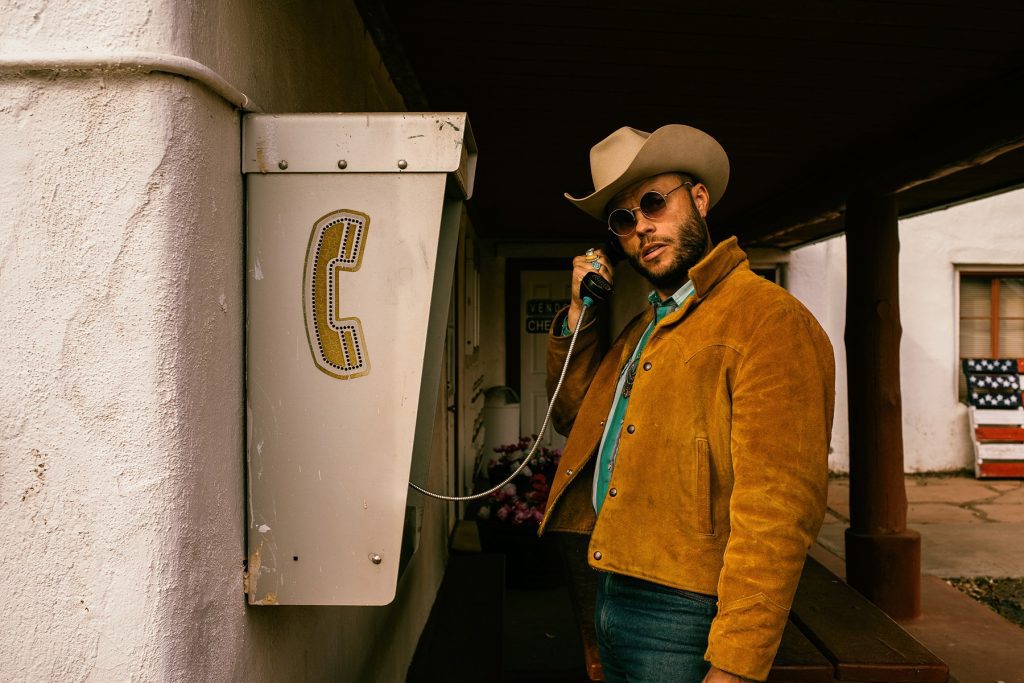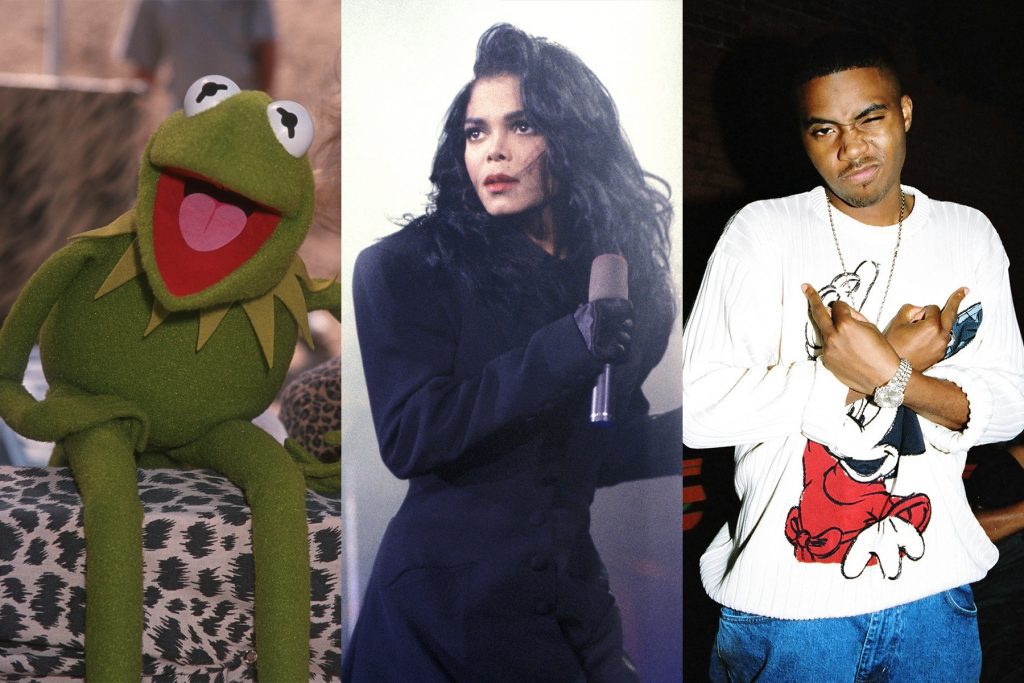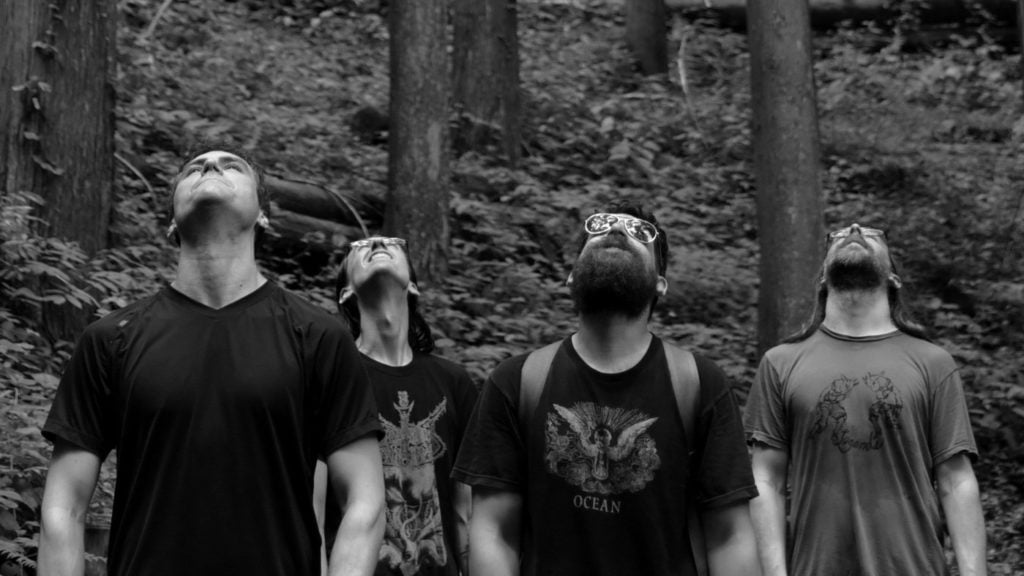
Charley Crockett’s Throwback Country Sound Isn’t in Fashion. That’s Fine With Him.
Not too long ago, Charley Crockett spent a day in Gallup, New Mexico, on a photo shoot for the cover of his next album. The Route 66 desert town in the northwestern part of the Land of Enchantment has long represented a bygone America: A young Bob Dylan, trying to make his upbringing seem more freewheeling than it was, falsely claimed that he lived there as a child. Today, Gallup, which once called itself “The Indian Capital of the World,” has the highest poverty rate in New Mexico.
“Most Americans have no idea about this,” Crockett tells IndieLand, before launching into an explanation of the town’s history as an economic center of the native world. “I just know that from passing through there a whole lot through the years,” the 37-year-old singer says with the world-weary wisdom of someone twice his age.
Crockett has been thinking a lot about places like Gallup lately, thanks to a song he recently recorded — “Music City USA” — that will likely serve as the title track to yet another studio album Crockett is releasing this year. The record, Crockett’s most stylistically expansive and sharply focused, will be his fourth in two years, coming right after his surprise tribute to late Texas honky-tonk hero James “Slim” Hand, released in February.
blogherads.adq.push(function () {
blogherads
.defineSlot( ‘medrec’, ‘gpt-dsk-tab-country-article-inbody1-uid0’ )
.setTargeting( ‘pos’, [“mid-article”,”mid”,”in-article1″,”btf”] )
.setSubAdUnitPath(“music//country//article//inbody1”)
.addSize([[300,250],[620,350],[2,2],[3,3],[2,4],[4,2]])
.setLazyLoadMultiplier(2)
;
});
After spending the better part of the last decade transitioning from street performer to touring recording artist, the Texas singer-songwriter is just beginning to receive widespread attention in the larger roots and country music worlds. His 2020 breakthrough, Welcome to Hard Times, was a Top 20 all-genre best-seller on iTunes and helped make Diplo a new fan, while Crockett’s Slim Hand tribute has already yielded a Top Five hit on the Americana charts.
And yet, despite having already released nine albums, Crockett has barely begun to reveal his full self to the broader public. “I think everybody probably feels like an outsider,” Crockett says. “But I think I really am one, maybe to a fault.”
“Music City USA” is Crockett’s missive to Nashville, but it also serves as an allegory for the anachronistic artist’s fraught relationship with the mainstream music industry. “I have a thing with Nashville,” as Crockett puts it.
“I shouldn’t have come here in the first place,” he sings in the song, over a deceptively cheery country shuffle. “’Cause folks in here don’t like my kind.”
But on another level, Crockett wants the song to be about much more: “Make ‘Music City USA’ be more about a town like Gallup than Nashville,” he says, pondering the possible deeper meaning behind his next album. “It’s not about Nashville. It’s about America.”
“It’s about America” is a neat way of describing the life’s work of Charley Crockett. In conversation, the singer speaks like a living and breathing national atlas. Ask him where he recorded his album and Crockett will reply, “Wildwood, Texas, which is just off 71 on the way to Bastrop, if you’re going out east from Austin.” He is obsessed with musical history and certainly believes that music is not what it used to be, but he’s the last person to romanticize its past. “It’s the question somebody put to me a long time ago: ‘If Robert Johnson had an iPhone, do you think he would have taken advantage of it?’ And it’s like, ‘Without a question. Without a shadow of a doubt.’”
“People have a hard time believing that in 2021 you could get here the way that I got here.”
Crockett’s own life story even feels like a tale from America’s mythical past. Born in southern Texas, the descendant of Davy Crockett spent a decade crisscrossing the country, performing on the streets of New Orleans and the subways cars of New York, navigating run-ins with the law, and dealing with life-or-death medical crises along the way. He had open-heart surgery in 2019.
“People think my story is far-fetched,” he told IndieLand in 2018, “but the thing is, I’ve toned it down.”
blogherads.adq.push(function () {
blogherads
.defineSlot( ‘medrec’, ‘gpt-dsk-tab-country-article-inbody2-uid1’ )
.setTargeting( ‘pos’, [“mid-article”,”mid”,”in-article2″,”btf”] )
.setSubAdUnitPath(“music//country//article//inbody2”)
.addSize([[300,250],[300,251],[620,350],[2,4],[4,2]])
.setLazyLoadMultiplier(2)
;
});
“I’ve been very open about my life and that’s created a lot of interest in how I got here, because I do think it’s pretty unusual, but it’s created a lot of confusion, too,” he says today. “[Other artists] have very tightly controlled narratives… My shit’s been really loose and wildly varied in its interpretations. My Wikipedia page, man, it’s crazy. There may be a few slight errors in timing or geography, but none of it’s inaccurate. People have a hard time believing that in 2021 you could get here the way that I got here.”
If Crockett’s larger-than-life backstory has helped create a compelling narrative in a corner of the music industry obsessed with the appearance of authenticity, it’s also made it harder for him to be taken seriously as a multi-dimensional artist. “It’s been difficult to find relationships with people in the music industry where I feel like they see me for who I am and not some kind of Disney character,” he says. “It’s been hard to find friends.”
But 10 for Slim, Crockett’s James Hand tribute, and the upcoming yet-to-be-officially titled album, might finally turn the tables for the songwriter. The Hand record shows Crockett’s mastery of vintage country styles, placing both Crockett and Hand within a long lineage of cult troubadours who never received their due during their day. “I felt like James Hand was the greatest living country singer in the old-school style, somewhere between a Hank Williams and a Willie Nelson,” Crockett says of the singer, who died last summer at the age of 67. (Crockett released a video for the Hand song “Midnight Run” on Wednesday.)
The new album, meanwhile, is a deep, studied mix of American roots — from Southern soul to Sixties Countrypolitan to noir-Western to country-blues — that serves as a sequel to 2020’s Welcome to Hard Times. Crockett wrote most of the songs in the studio over a one-week period, but the tracks — refined and thoughtful, often working on several levels of narrative — represent his biggest leap toward his goal of becoming regarded more for his music than his “Disney” backstory. “I’m trying to be a good songwriter,” says Crockett, who’s lately become enamored with the subtle complexity of songwriters like Bruce Springsteen. “I don’t think I have been [one].”
The upcoming album also contains two country covers from the Sixties, a time period Crockett relishes despite his awareness of how out-of-fashion that decade’s polished country music is viewed. “‘Sixties country music’ are not popular words to say in 2021,” he says with a sneer. “I’ve put out a lot of records, and it’s always the same shit, there’s always some publicist or somebody you deal with telling you not to say ‘Sixties country.’”
blogherads.adq.push(function () {
blogherads
.defineSlot( ‘medrec’, ‘gpt-dsk-tab-country-article-inbodyX-uid2’ )
.setTargeting( ‘pos’, [“mid-article”,”mid-articleX”,”mid”,”in-articleX”,”btf”] )
.setSubAdUnitPath(“music//country//article//inbodyX”)
.addSize([[300,250],[300,251],[3,3],[620,350]])
.setLazyLoadMultiplier(2)
;
});
Crockett takes pride in working in unfashionable styles. He’s interested in subverting the expectations and sonic and aesthetic fads that run through contemporary Americana music. He also thinks he’s talented enough to do it. One of the covers on his new record is the 1967 hit “Skip a Rope,” first recorded by Henson Cargill, a song that shrouds dark allusions to racism and family turmoil with a playground chorus.
“I recorded ‘Skip a Rope’ just because I heard several bad versions recently, and I thought I might show people how it’s done,” he says. “Plus, I do like the message.”
A big part of what gives Crockett his confidence is his untraditional background in street performance, which he knows has also been his greatest obstacle in being taken seriously.
“Obviously I got a chip on either shoulder, and I guess you can get like that coming at the music business the way that I have,” he says. “I’ve been called a lot of things, like, ‘Relying on gimmicks’ or ‘Street performer who’s just willing to pick up any style to get the money.’ But the other side of the coin, especially being associated with Nashville and a lot of the current independent country movement or whatever that is, everybody in the conversations that I’m associated with, it’s all pure singer-songwriter alt-country Nashville. And to be honest with you, I feel like that’s just one of my many faces. I don’t mean this to come off wrong: I can do what they do, but they can’t do what I do. And the only thing they’re ever looking at me for are the things they compare me to because of what they do.”
A few years ago, Crockett might have become frustrated by such things: feeling like he was being placed in a box or categorized as an artist. It might cause him to, say, write several songs on his forthcoming record about what that feels like.
Not anymore.
“If people don’t easily understand you, a lot of what you’re trying to do might not come across, and that can be frustrating,” Crockett says. “But I think as I’m getting older I’m learning that it’s OK to be misunderstood.”
blogherads.adq.push(function () {
blogherads
.defineSlot( ‘medrec’, ‘gpt-dsk-tab-country-article-inbodyX-uid3’ )
.setTargeting( ‘pos’, [“mid-article”,”mid-articleX”,”mid”,”in-articleX”,”btf”] )
.setSubAdUnitPath(“music//country//article//inbodyX”)
.addSize([[300,250],[300,251],[3,3],[620,350]])
.setLazyLoadMultiplier(2)
;
});




